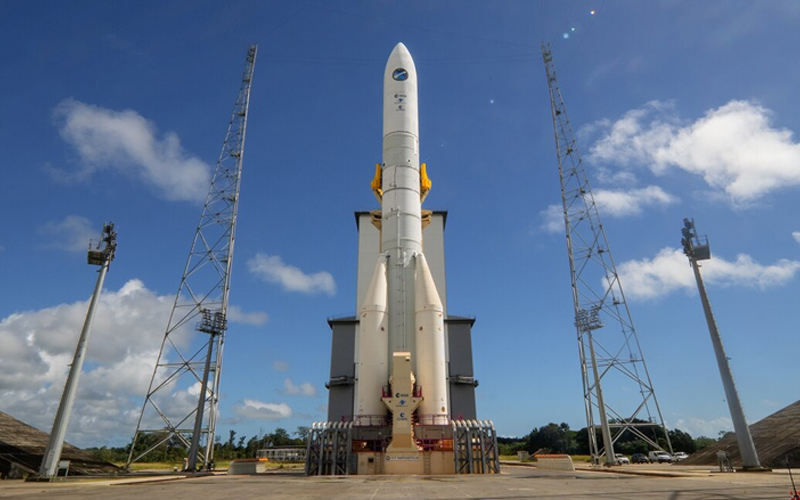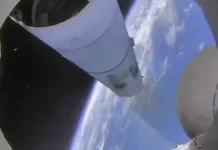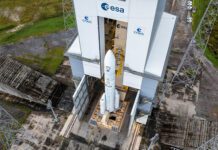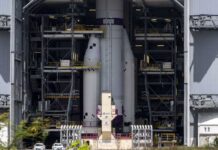
The European Space Agency has announced that the maiden flight of the Ariane 6 rocket is scheduled to take place on 9 July from The Guiana Space Centre in French Guiana.
Director General Josef Aschbacher revealed the date of the maiden Ariane 6 flight during a press briefing on the first day of the ILA Berlin Air Show in Germany.
The announcement comes just three weeks after an Ariane 6 Task Force update on 21 May narrowed the launch date to the first two weeks of July. Since then, teams on the ground in French Guiana have completed a “dry run” of the launch. Completed on 31 May, the dry run confirmed that the software, commands, and data connections between the rocket and the control centre are operational.
The next major milestone expected to be completed is the Ariane 6 launch systems qualification review close-out. This will be followed by the transfer and integration of the upper composite, which includes the fairing, payloads, and launcher adapter. The final milestone to be completed before the launch countdown on 9 July is the wet dress rehearsal, which is slated for 18 June.
ESA member states agreed to fund the development of Ariane 6 in December 2014. At the time, the development of the rocket was expected to cost approximately €3.215 billion, and it was slated to be introduced in 2020. When it is finally introduced next month, four years late and over €800 million over budget (not including €350 million per year in operational subsidies), it will mark the return of sovereign European heavy-lift launch capabilities. However, with a launch market that has become more competitive than ever, will it have any chance of competing?




